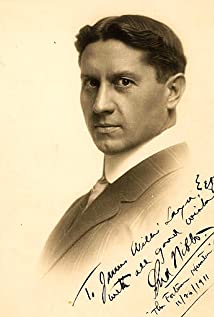Fred Niblo
Fred Niblo entered films in 1917 after two decades as a touring actor in vaudeville and one-time manager of 'The Four Cohans' (he married Josephine Cohan, the sister of George M. Cohan). He made his film debut with two early Australian silent films in 1916. He worked for Thomas H. Ince from 1917 as producer-director, many of his films starring his second wife, Australian actress Enid Bennett. Niblo joined Paramount under a three-year contract from 1918-21 and then settled at MGM (1923-31). During this period, his chief claim to fame rests on directing the epic Ben-Hur: A Tale of the Christ (1925), filmed in Italy (though completed in California) at the (then) staggering cost of $4 million. Niblo was brought in by Louis B. Mayer to replace director Charles Brabin after the production ran into financial difficulties.He not only rescued it but made it into one of the biggest blockbusters of the decade. However, it was second-unit director B. Reeves Eason who deserves credit for the famous chariot race.
In 1926 Niblo replaced Swedish director Mauritz Stiller who had a disagreement with producer Irving Thalberg, on Greta Garbo's The Temptress (1926). This, alongside Camille (1926) and The Mysterious Lady (1928), were his last successes. His career failed to survive the transition to sound and even a stint in England could not resuscitate it. After a few small parts as an actor, Niblo slipped quietly into relative obscurity in 1943.

